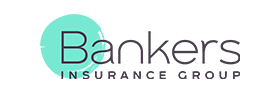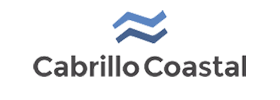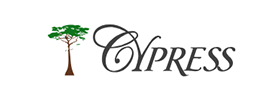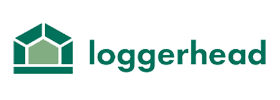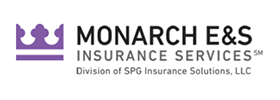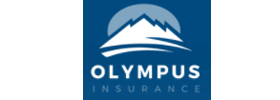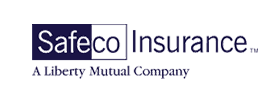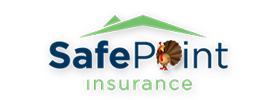Home Insurance Liability: Coverage Explained
Does your home insurance adequately protect you from liability risks? Many homeowners overlook the crucial liability coverage in their policies. This article explains home insurance liability, covering common risks like property damage and injury claims. You’ll learn how to determine the right coverage amount, understand how claims affect your policy, and discover tips to prevent liability issues. By the end, you’ll be equipped to make informed decisions about your home insurance, ensuring better protection for your property and finances.
Key Takeaways
- Home insurance liability coverage protects against legal and financial risks on and off your property
- Liability coverage extends to family members and pets, covering various incidents and negligence claims
- Regular property maintenance and safety measures can help prevent liability claims and accidents
- Umbrella policies provide additional protection beyond standard home insurance for high-value claims and unique situations
- Contact Arnold Insurance at (941) 214-8668 for tailored home insurance solutions in Port Charlotte, Florida
Understanding the Basics of Home Insurance Liability
Florida Home Insurance liability coverage protects you from legal liability for damages or injuries that occur on your property. This crucial aspect of your policy safeguards against various risks, including dog bites and flood-related incidents. Understanding who is protected and what’s covered under your liability policy is essential for comprehensive insurance protection.
Explain What Liability Coverage Means for Homeowners
Liability coverage in your home insurance policy protects you from financial expenses if someone is injured on your property or you accidentally damage someone else’s property. This crucial component of your Florida Home Insurance extends beyond your dwelling, covering incidents that may occur off your property as well. Contact Us for more information.
Your liability insurance acts as a safety net, shielding you from potentially devastating legal and medical costs. Whether it’s a slip-and-fall accident on your driveway or damage caused by your tree falling onto a neighbor’s vehicle, liability coverage ensures you’re not left facing these expenses alone.
Identify Who Is Protected Under Your Liability Policy
Your home insurance liability policy typically protects you, your spouse, and other family members living in your household. This coverage extends to personal injury claims, property damage, and legal defense costs arising from negligence. If you have pets, your policy may also include pet insurance aspects, covering incidents like dog bites on your property.
It’s important to note that your liability coverage doesn’t just apply to incidents on your property. It follows you and your covered family members, providing protection for accidents that occur outside your home as well. This comprehensive coverage ensures you’re protected in various situations, from a baseball accidentally breaking a neighbor’s window to a guest slipping on your icy driveway.
- Homeowner and spouse
- Resident family members
- Pets (for specific incidents)
- Coverage on and off property
- Protection against negligence claims
Now that you grasp the basics, let’s tackle the real threats. Home insurance liability covers more than you might think.
Common Liability Risks Covered by Home Insurance
Your home insurance liability coverage protects you from various risks, including accidents on your property and damage you cause to others. Understanding these common liability risks is crucial for effective coverage. We’ll explore on-property accidents and how property damage to others is handled, addressing key factors like water damage, potential lawsuits, and deductibles.
Explore Accidents That Occur on Your Property
Your home insurance liability coverage protects you from various risks that can occur on your property, including slip and fall accidents, roof-related incidents, and other unforeseen events. Whether you own a house or a condominium, understanding these potential hazards is crucial for ensuring adequate protection and minimizing your financial risk.
Common accidents covered by your liability policy include injuries sustained by visitors due to icy walkways, faulty stairs, or falling objects from your roof. Your coverage also extends to accidents that may occur in shared spaces of a condominium complex. Remember, your policy’s replacement value for damaged property or medical expenses can significantly impact your financial security in case of an accident.
Learn How Property Damage to Others Is Handled
Your home insurance liability coverage extends to property damage you or your family members cause to others. This includes accidental damage to a neighbor’s property, such as a tree falling on their fence or water damage from your overflowing bathtub. If you’re renting, your policy may cover damage to the landlord’s property, but it’s essential to understand the specific terms of your coverage.
In cases of extensive damage or high-value claims, you might consider umbrella insurance for additional protection. While standard policies typically cover theft and accidental damage, they may not include flood insurance. It’s crucial to review your policy and consider additional coverage options to ensure comprehensive protection against various risks, including natural disasters.
- Accidental damage to neighbor’s property
- Water damage from household incidents
- Coverage for renters damaging landlord’s property
- Umbrella insurance for high-value claims
- Additional coverage options for specific risks
You know the risks. Now, let’s figure out how much protection you need. It’s not just about covering risks; it’s about sleeping soundly at night.
Determining the Right Amount of Liability Coverage

Determining the right amount of liability coverage for your home insurance is crucial. You’ll need to assess your personal liability risks and exposures, considering factors like your mortgage, vehicles, and potential loss of use scenarios. Understanding how actual cash value and underwriting processes impact your coverage limits will help you make informed decisions about your insurance needs.
Assess Your Personal Liability Risks and Exposures
When assessing your personal liability risks, consider potential hazards on your property that could lead to accidents or injuries. This includes factors like storm damage, hail, or other weather-related incidents that might affect your home’s structural integrity. As a homeowner or landlord, you’re responsible for maintaining a safe environment, so evaluate areas where guests or tenants might be at risk.
Don’t forget to account for depreciation in your property’s value when determining liability coverage. Your liability needs may change over time, so regularly reassess your risks. Consider how events like severe weather or accidents could impact your financial situation and adjust your coverage accordingly to ensure you’re adequately protected against potential lawsuits or claims.
Consider Factors That Influence Coverage Limits
When determining your liability coverage limits, consider the value of your assets and potential risks associated with your property. Your homeowners policy should provide enough personal liability insurance to protect your finances in case of a lawsuit. Factors like your home’s location, features like swimming pools or trampolines, and even your lifestyle can influence the amount of coverage you need.
Review your insurance policies regularly to ensure your liability insurance covers evolving risks. As your assets grow or your circumstances change, you may need to adjust your coverage limits. Remember, personal liability insurance not only protects your current assets but also your future earnings, so it’s crucial to have adequate protection in place.
Liability coverage protects you. But claims can impact your insurance in unexpected ways.
How Liability Claims Affect Your Home Insurance
Filing a liability claim can significantly impact your homeowners insurance. Understanding the claim process and how it affects your rates is crucial for maintaining adequate liability coverage. Learn how to navigate liability claims and protect your personal property coverage while managing potential rate increases in your home insurance policy.
Understand the Process of Filing a Liability Claim
When filing a liability claim, you must promptly notify your insurance company of any injuries or property damage that occurred on your property. Provide detailed information about the incident, including photos, witness statements, and any medical reports. Your insurance company will assess the claim and determine the extent of your liability protection.
The claims process may involve negotiations with the injured party or their representatives. Your insurance company will handle these discussions on your behalf, working to reach a fair settlement within your policy limits. It’s crucial to cooperate fully with your insurer and provide any additional information they request to ensure smooth processing of your claim:
- Report the incident immediately
- Gather and submit all relevant documentation
- Cooperate with your insurance company’s investigation
- Allow your insurer to handle negotiations
- Stay informed about the claim’s progress
Recognize How Claims Can Impact Your Insurance Rates
Filing a liability claim can impact your homeowners insurance policy in several ways. Your insurance company may view you as a higher risk after a claim, potentially leading to increased premiums. The extent of the rate increase often depends on the severity of the claim and your claims history.
To minimize the impact on your homeowners insurance policies, consider handling minor incidents without filing a claim if possible. Maintaining a solid claims-free history can help you secure better rates and more comprehensive liability insurance coverage in the long run. As a homeowner, it’s crucial to balance the need for protection with the potential consequences of filing multiple claims.
Knowing how liability claims impact your home insurance is crucial. Let’s explore practical steps to safeguard your property and reduce risks.
Tips to Prevent Liability Claims at Home

Preventing liability claims is crucial for maintaining affordable home insurance coverage. By implementing safety measures and regularly maintaining your property, you can reduce accident risks and avoid potential hazards. These proactive steps not only protect your guests but also safeguard your home insurance liability coverage and potentially your auto insurance policy as well.
Implement Safety Measures to Reduce Accident Risks
To reduce accident risks and protect your personal liability coverage, implement key safety measures around your home. Install proper lighting in all areas, especially stairways and outdoor paths, to prevent slip and fall accidents. Secure loose rugs and repair any uneven flooring to minimize tripping hazards. These simple steps can significantly lower the chances of a home insurance claim.
Regularly inspect and maintain your property to address potential liability issues before they become problematic. Check for loose railings, damaged steps, or unstable trees that could pose risks to visitors. By proactively addressing these concerns, you’ll not only enhance safety but also demonstrate your commitment to maintaining a secure environment, which can be beneficial if you ever need to file a homeowners liability insurance claim.
| Safety Measure | Benefit |
|---|---|
| Proper lighting | Reduces slip and fall accidents |
| Secure loose rugs | Minimizes tripping hazards |
| Regular property inspections | Addresses potential issues proactively |
Maintain Your Property to Avoid Potential Hazards
Regular property maintenance is crucial for avoiding potential hazards and reducing liability risks. Inspect your building’s foundation, roof, and structural elements periodically to prevent issues like landslides or collapses. By investing time and money in preventive maintenance, you’ll protect your finances and minimize the risk of costly insurance claims.
Address any safety concerns promptly to maintain a secure environment. This includes repairing damaged walkways, securing loose railings, and trimming overgrown trees. Remember, proactive maintenance not only safeguards your property but also demonstrates responsible homeownership, which can positively impact your insurance payments and overall financial stability.
- Inspect foundation and structural elements regularly
- Repair damaged walkways and secure loose railings
- Trim overgrown trees and vegetation
- Address safety concerns promptly
- Document maintenance activities for insurance purposes
Protecting your home from liability claims is essential. But sometimes, standard coverage isn’t enough.
Enhancing Liability Protection With Umbrella Policies
Umbrella policies offer enhanced liability protection beyond standard home insurance coverage. You’ll discover how these policies can safeguard your assets, including protection against wildfires or construction-related incidents. Learn if additional coverage suits your needs, considering factors like your credit score and potential pain and suffering claims. Umbrella policies provide comprehensive protection for various scenarios, including tree-related damages.
Discover the Benefits of Adding an Umbrella Policy
Adding an umbrella policy to your home insurance can provide extensive benefits, especially if you own valuable assets like a garage or motorcycle. This extra layer of protection extends beyond your standard liability coverage, safeguarding you against costly lawsuits that could potentially exceed your primary policy limits. An umbrella policy can also cover unique situations, such as pet-related incidents or fault claims that your standard policy might not address.
Umbrella policies offer peace of mind by protecting your clothing and other personal belongings in case of a major liability claim. They typically provide coverage for a wide range of scenarios, including accidents on your property or those involving your vehicles. Here’s a breakdown of the key benefits:
| Benefit | Description |
|---|---|
| Extended Coverage | Protects beyond standard policy limits |
| Asset Protection | Safeguards valuable assets like garages and motorcycles |
| Comprehensive Protection | Covers unique situations, including pet-related incidents |
| Personal Property Coverage | Protects clothing and belongings in liability claims |
Evaluate if Additional Coverage Suits Your Needs
Evaluating if additional coverage suits your needs involves assessing your dwelling’s market value and potential risks. Consider factors like your home’s susceptibility to lightning strikes, the presence of detached structures like sheds, and the value of your air conditioning system. These elements can impact your coverage requirements and help determine if an umbrella policy is necessary.
Analyze your current liability limits and compare them to your total assets. If your assets exceed your current coverage, an umbrella policy can provide crucial protection. For instance, if a severe storm damages your shed and causes injury to a neighbor, an umbrella policy could cover expenses beyond your standard homeowners insurance limits:
| Asset | Potential Risk | Coverage Consideration |
|---|---|---|
| Dwelling | Lightning strike | Assess market value vs. coverage |
| Shed | Storm damage | Include in umbrella policy |
| Air conditioning | Malfunction causing injury | Evaluate replacement cost |
Your home is your fortress. Let Arnold Insurance help you build stronger walls with the right coverage options.
Contact Arnold Insurance For Your Home Insurance Options

Contact Arnold Insurance for comprehensive home insurance options that protect you from liability risks and wear and tear. Our experienced team can help you understand how building codes affect your coverage and ensure your policy aligns with local regulations.
Your home is more than just a place to live; it’s often your most valuable asset and may even be a tool for your business. We’ll work with you to create a policy that safeguards your property and your financial health, offering tailored solutions for your unique needs.
At Arnold Insurance, we understand that every homeowner’s situation is different. Whether you’re concerned about liability issues or want to ensure your policy covers potential health hazards, our experts are here to guide you through your options.
Don’t let insurance concerns weigh on your mind. Reach out to Arnold Insurance today at (941) 214-8668 to discuss your home insurance needs. Our Port Charlotte office is ready to provide you with professional advice and customized coverage solutions.
Frequently Asked Questions
What does home insurance liability coverage typically include?
Home insurance liability coverage typically protects you if someone is injured on your property or if you accidentally damage someone else’s property. It usually covers legal fees, medical expenses, and potential settlements if you’re found responsible for injuries or damages.
How much liability coverage do I need for my home insurance policy?
The amount of liability coverage you need for your home insurance policy depends on your assets and potential risks. Generally, we recommend at least $300,000 to $500,000 in liability coverage for most homeowners in Port Charlotte, Florida. Contact Arnold Insurance for personalized advice.
Can liability claims increase my home insurance premiums?
Yes, liability claims can increase your home insurance premiums. Insurance companies often view these claims as indicators of higher risk, potentially leading to higher rates upon policy renewal. To help manage costs, consider increasing your deductible or implementing safety measures around your property.
What steps can I take to prevent liability claims at home?
To prevent liability claims at home, maintain your property regularly, fix hazards promptly, secure your pool, keep walkways clear, and ensure proper lighting. Consider installing security cameras and displaying warning signs. Always have adequate homeowners insurance coverage to protect yourself financially.
How does an umbrella policy enhance my home insurance liability protection?
An umbrella policy provides additional liability coverage beyond your home insurance limits. It protects your assets from lawsuits, covering expenses like legal fees and settlements. This extra layer of protection offers peace of mind, safeguarding your financial future against unforeseen incidents on your property.





